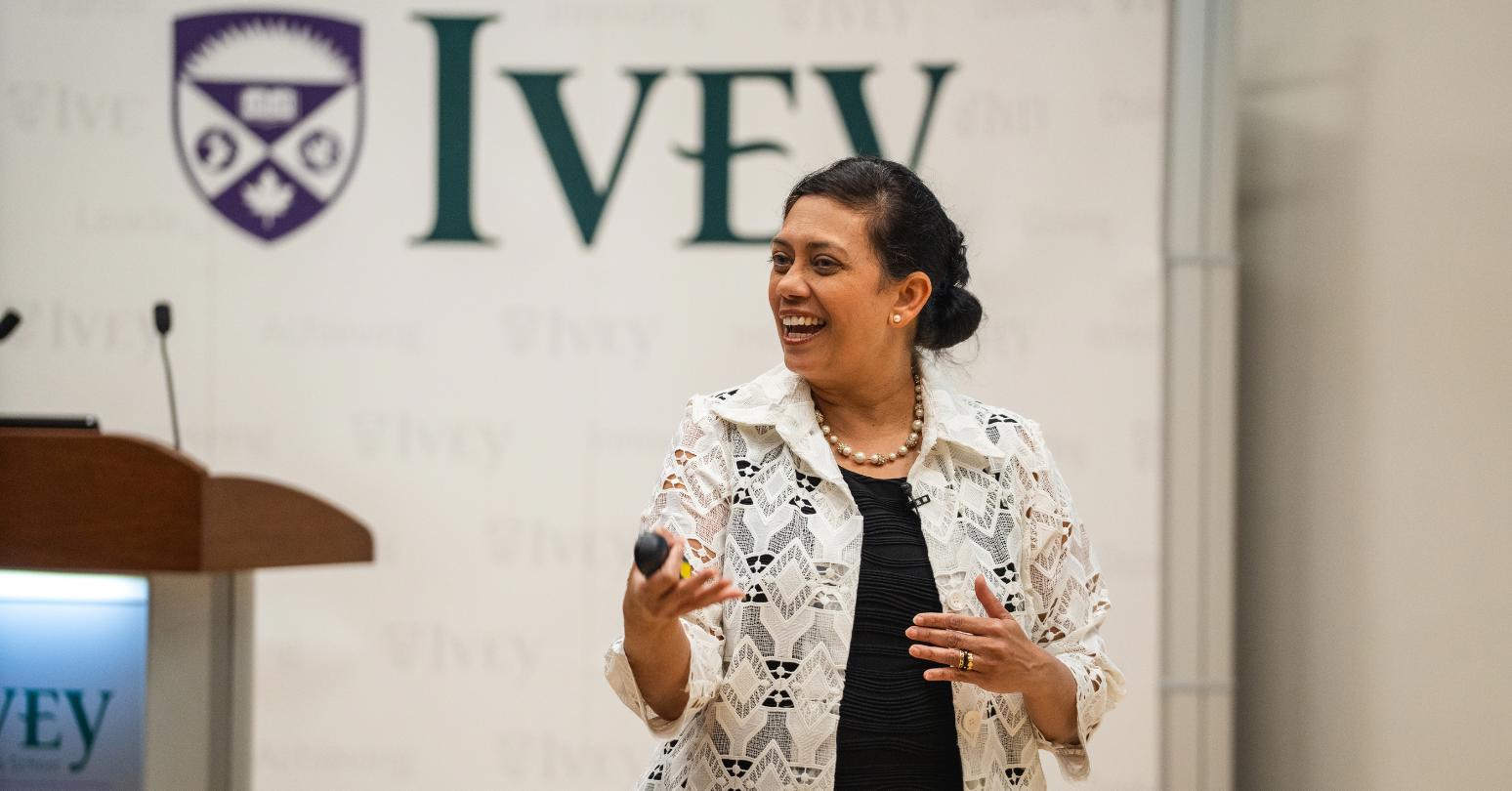Ivey recently welcomed award-winning professor and researcher Vanessa Patrick, PhD, to address a group of students, staff and faculty, delving into the new science of saying no and the psychology behind why we say yes when we want to say no.
Dr. Patrick is the Associate Dean for Research, Executive Director of Doctoral Programs, a Bauer Professor of Marketing, and lead faculty of the Executive Women in Leadership Program at the Bauer School of Business at the University of Houston.
A highlight of Patrick’s talk, hosted by the Ihnatowycz Leadership Institute’s Women’s Leadership and Mentoring Program (LAMP), was the introduction of the ground-breaking concept of “empowered refusal” – a proven framework for saying no that puts you in charge of your life.
What should I say no to?
From “Pass the Salt” to “The Hero’s Journey”, Patrick cleverly named the ways in which we can decipher an ask and determine when to say yes or no, based on the perceived cost to us versus the benefit to others due to completing the task.
“If it’s not a resounding yes, then it’s a hell no,” said Patrick, quoting her book The Power of Saying No. “There’s no middle ground here – there’s no space for a wishy-washy no, or a reluctant yes. It has to be very clear, and the intentionality behind the decision also has to be super clear.”
Patrick went on to share why empowered refusal is a valuable skill that helps us say no in a way that does not invite pushback from others, providing the group with a toolkit of competencies and simple rules needed to effectively communicate an empowered no response.
“Saying no is like learning a new language,” said Patrick. “It requires practice… By saying no, we are learning a super-skill that allows us to become trustees of our own life. We are learning a super-skill that has a spillover effect. When we learn to say no, we feel more confident, we are more likely to negotiate on our own behalf, and we are more likely to advocate for our ourselves, others, and the things that matter to us.”



